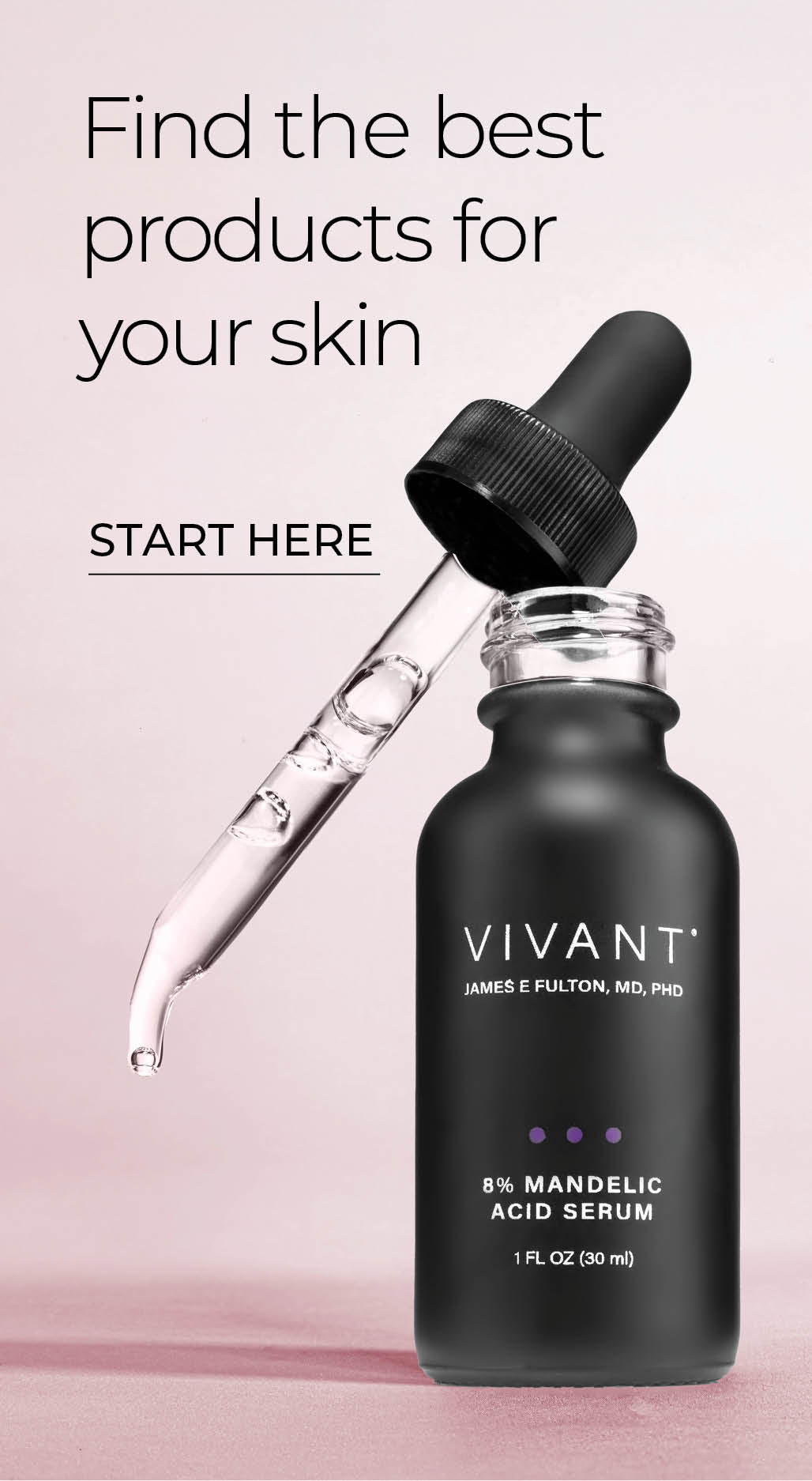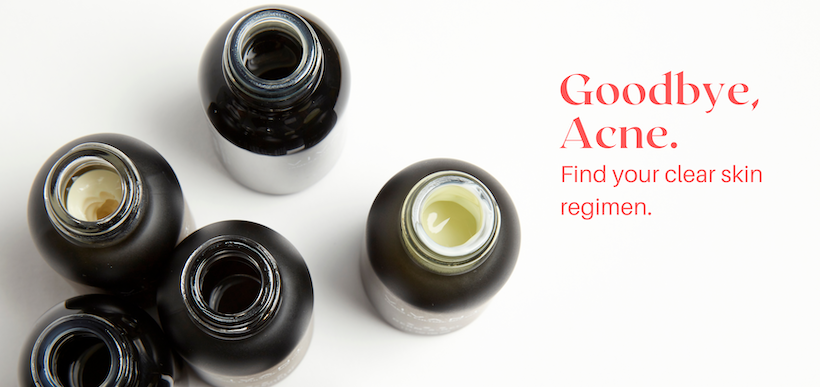Your Pregnancy-Safe Skin Care Checklist

Table of content
Pregnancy is equal parts serenity, joy, anticipation and panic. Between the parade of emotions and all the prep, you don’t have much time to think about your skin. But with hormones in overdrive, it’s unlikely your skin will let you cruise through this time without a few surprises. You might find your skin breaking out even if your skin is normally clear. You could also experience rosacea or melasma.
Some of the products you might normally turn to target these issues are off limits during pregnancy and nursing as they can be absorbed into the bloodstream and may pose a risk to your baby. Fortunately, the FDA provides a pregnancy-safe rating system to help in this regard. Their scale is A, B, C, D and X, A being no risk, X being off limits.
Here’s a quick rundown to help you determine what’s okay and what’s “no way.”
Retinoids
Even though vitamin A is required for proper development of the fetus, too much is not good for baby. Excess Vitamin A during pregnancy is linked to birth defects and liver toxicity. You get plenty from your diet. This is not the time to add it topically. Any form of vitamin A—Retin A, retinyl, retinol, retinoid—is off your list, Mama.
Tezorac and Accutane
These prescription acne-fighters are totally off the table. The FDA lists them as category X on the pregnancy-safe scale.
Benzoyl Peroxide
Some doctors consider it safe in small amounts during pregnancy. Others say no. The FDA puts it in category C, possible risk to fetus. Studies indicate that, when applied topically, only 5% of BP is absorbed through the skin, and then it is completely metabolized to benzoic acid within the skin and excreted unchanged in the urine. We always like to err on the safe side, so while BP is highly effective for treating acne, it might be wise to choose an alternative during pregnancy and nursing, or at least significantly limit your usage.
Salicylic Acid
This beta hydroxy acid appears in the ingredient list of many acne creams and washes. Salicylic acid is a class C on the FDA pregnancy rating scale but is a metabolite of aspirin, which is a class D, and it is absorbed through the skin. No studies with salicylic acid have been done on pregnant women. Animal studies have shown an association with birth defects with consistent, high doses. Used topically, in small amounts, it’s considered safe, but we’d err on the side of caution and avoid.
Hydroquinone
Used for skin lightening, hydroquinone has a fairly high absorption rate —35% to 45%. While only one study has been done involving its use during pregnancy and that was not conclusive, the high absorption rate warrants added caution. While it rates a C on the risk scale, our advice is to avoid hydroquinone during pregnancy and nursing.
Soy
Soy-based products have an estrogenic effect, which can make acne and melasma worse. Look for “active soy” products that have had the estrogenic components removed.
Top Pregnancy-Safe Choice!
Mandelic Acid
Alpha hydroxyl acids (AHAs) including lactic and glycolic are safe for use during pregnancy and nursing. These natural exfoliators help to stimulate cell renewal and collagen production. But one AHA is unique among others and is our top choice for pregnancy-safe skin care: Mandelic Acid.
Derived from bitter almonds, this gentle AHA is a multi-tasking wonder that targets all your issues—acne, fine lines, and discoloration. Because of its larger molecular size, it’s absorbed more slowly into the skin so it’s less irritating than some other AHAs, so it won’t trigger post-inflammatory hyperpigmentation even in darker skin tones. It’s also a natural melanin inhibitor, making it ideal for fading hormonally-induced melasma.
Other Pregnancy-safe alternatives
Erythromycin
Topical erythromycin, an antibiotic that kills acne bacteria, is a B on the FDA scale, minimal risk. This topical acne fighting gel is a safe way to treat acne during pregnancy.
Sulfur
A natural mineral that fights bacteria and aids in shedding dead skin, sulfur has been used for centuries to treat skin conditions including acne, psoriasis, eczema, and rosacea. And it’s safe for use during pregnancy.
Vitamin C (Ascorbic Acid)
This essential antioxidant is critical to the synthesis of collagen and helps to keep skin glowing, clear and protected from UV radiation. It’s a great overall skin enhancer that can be used be used safely during pregnancy and nursing.
Sunscreen
Since UV exposure can worsen melasma, sunscreen is a must. Choose physical sunscreens that contain titanium dioxide and zinc oxide don’t penetrate the skin. Avoid sunscreens containing oxybenzone.
Suppress acne-causing bacteria and promote exfoliation with Mandelic Acid 3-in-1 Exfoliating Cleanser an all-natural, gentle scrub with antioxidant green tea extract, nourishing grape seed oil, anti-inflammatory kiwi extract, and antibacterial honey.
Refine, clarify and enhance penetration of serums and other products with antioxidant-rich, anti-inflammatory Skin Nourishing Toner formulated with mandelic acid, rosehip oil and calming botanical elements.
Target acne, fine lines, and discoloration with Vivant’s 8% Mandelic Acid 3-in-1 Serum that gently exfoliates, brightens, and boosts collagen production.
Click here to see the FDA Pregnancy Rating Categories for active ingredients.


Comments
Hello Roxanne,
Congratulations on your pregnancy. Vivant’s Mandelic Acid line is safe to use throughout pregnancy and breastfeeding. You can keep using the 15% serum.
I am currently using 15% mandelic acid. Is this safe throughout pregnancy or should I go down to 8%?